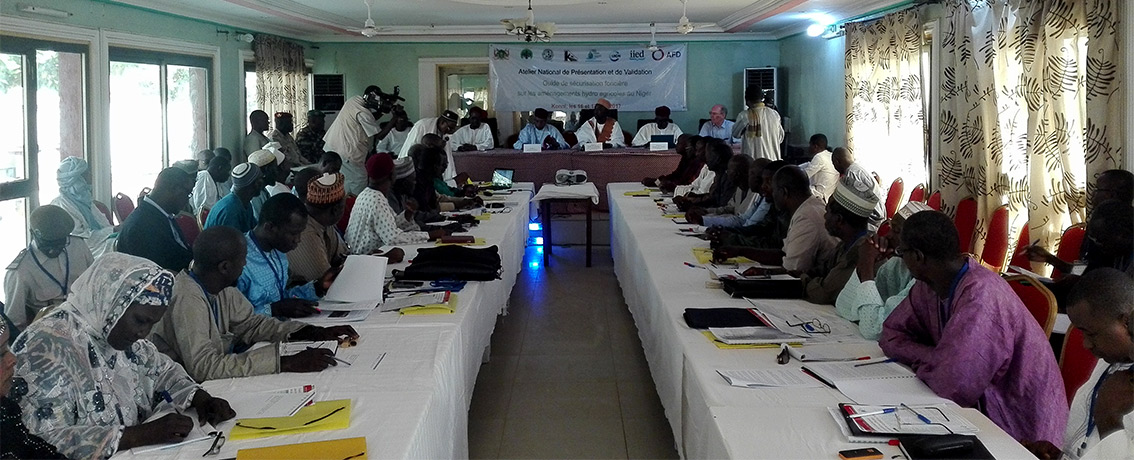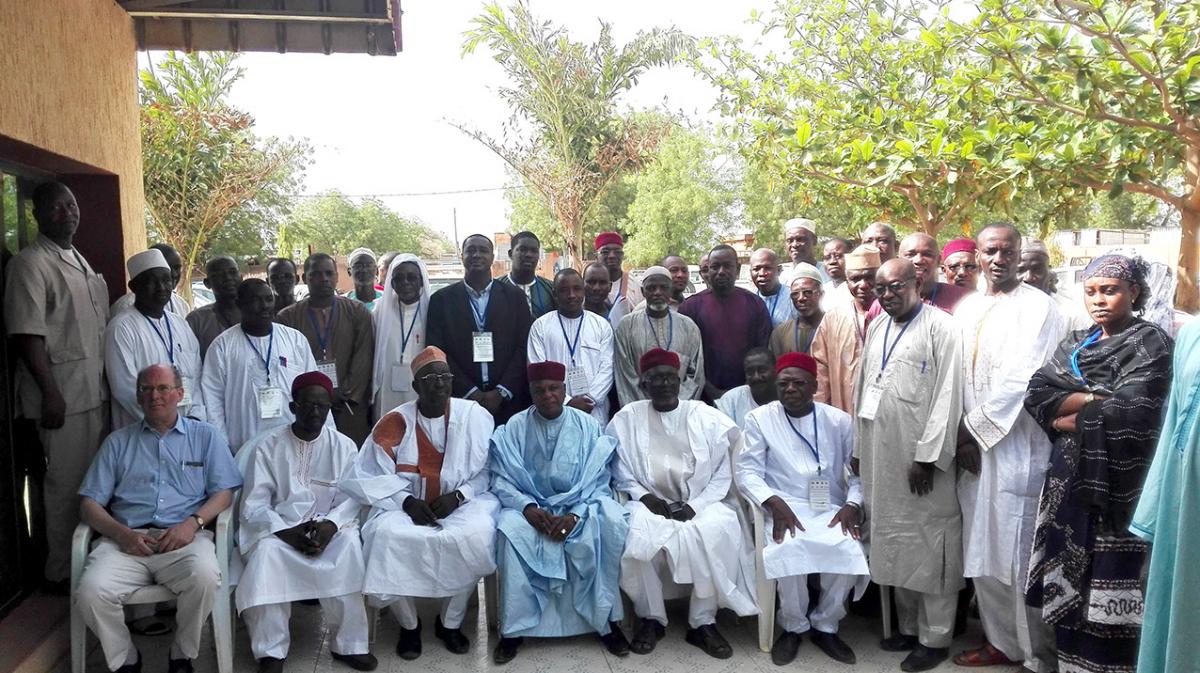The guide for securing land tenure in irrigation schemes in Niger has been approved and is ready for use
Stakeholders in the irrigation and rural land tenure areas in Niger met on 16 and 17 June in Konni to approve the guide that will allow to carry out land tenure securing operations in all the irrigated schemes throughout the country. The guide was produced by the National Office for Irrigation Schemes (ONAHA) in collaboration with GWI West Africa on the basis of a pilot activity carried out in Namardé Goungou.
A workshop was held in Konni, Niger, on 16 and 17 June, to present and approve the guide on securing land tenure in irrigation schemes in Niger, based on the pilot experience that was led in Namardé Goungou. The event was chaired by a representative of the Minister of Agriculture and Livestock, and gathered around 80 representatives of national stakeholders involved in land tenure in irrigated schemes: the national, regional and local authorities, technical services, farmers and farmer cooperatives, civil society organisations, and technical and financial partners.
"Irrigated agriculture is one of the options Niger has adopted to increase production and combat food insecurity," said Mr Boubacar Goubé Illiassou, Deputy Secretary General and representative of the Minister of Agriculture and Livestock. "Through the 3N Initiative ("Nigerians Feed Nigerians") strategy, which is the benchmark for interventions in agricultural development and food and nutrition security, the Nigerian State is aiming to increase the contribution of irrigation and runoff water collection to national agricultural production by increasing the irrigated areas from 85,000 to 125,000 hectares (ha). "
Securing irrigated land is a critical point for the completion of the objectives set out by the Nigerian State and to secure smallholder farms as well. The approved guide will therefore be a valuable tool for ONAHA, which will lead securing operations for all irrigation schemes throughout the country.
"In State-developed irrigation schemes, no legal document has been delivered to establish the ownership of the State via their registration, and/or the arrangements made between the State and the beneficiaries, despite the provisions of the law, with the exception of the Saga scheme", explained Mr Aliou Kouré, Director General of ONAHA, to stress the importance of conducting such operations. "This situation jeopardizes the sustainability of schemes because their legitimacy can be called into question by the former holders of land rights and consequently makes the future of the farmers uncertain."
The guide was developed by a team of national experts with the support of the Research and Technological Exchange Group (GRET). It aims to facilitate the field implementation and spreading of land securing operations on existing irrigation schemes In Niger. It is also intended to support the thought process around securing future irrigated schemes and their farmers.
"GWI supported ONAHA between April 2015 and June 2017 in a pilot land securing project in Namardé Goungou that resulted in the issuance of a land title covering the scheme’s 362 ha and the imminent signature of secure contracts with its 800 farmers", said Mr Jamie Skinner, director of GWI West Africa. "The guide is the result of this participatory experience, and its approval is an important step for its appropriation and use at the national level."
Organized by ONAHA in partnership with the High Commission for the Development of the Niger Valley (HCAVN) and GWI, and implemented by the International Union for Conservation of Nature (IUCN) and the International Institute for Environment and Development (IIED), this workshop was co-funded by the Howard G. Buffett Foundation and the French Development Agency (AFD).
To learn more about our work in Niger, see our country page, as well as our 2014 study on the definition of measures to secure land tenure in irrigated schemes in Niger.


